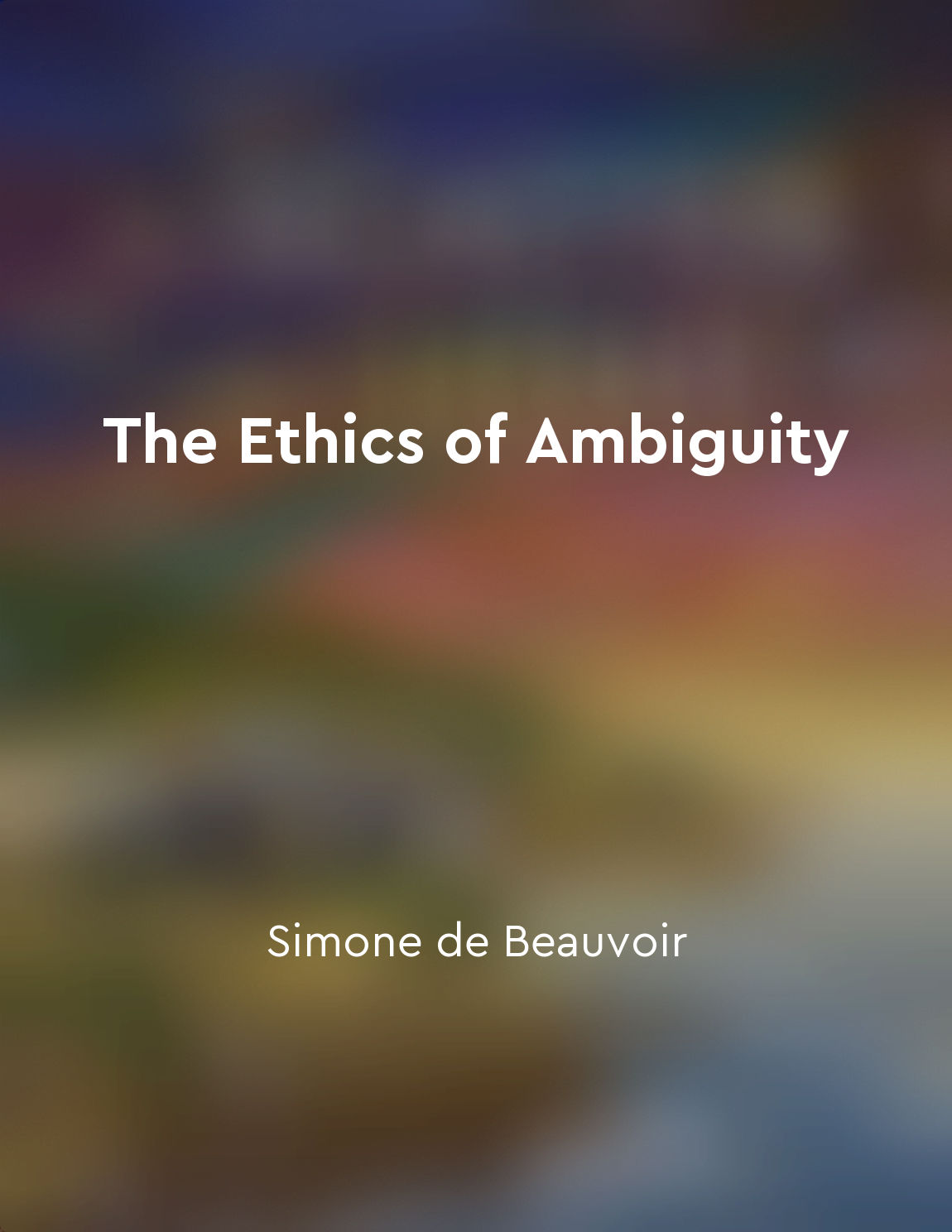The impartial spectator serves as a moral compass from "summary" of The Theory of Moral Sentiments - Adam Smith by Adam Smith
In our pursuit of moral goodness, we often rely on an inner voice that acts as a guide, leading us towards what is right and just. This inner voice, known as the impartial spectator, serves as a moral compass, helping us navigate the complexities of ethical decision-making. The impartial spectator is an imaginary figure within us, representing an objective and unbiased perspective that we use to judge our own actions and thoughts. When we are faced with a moral dilemma, we imagine how our actions would appear to this impartial spectator. By doing so, we are able to step outside of our own biases and emotions, gaining a clearer understanding of the moral implications of our choices. The impartial spectator allows us to distance ourselves from our immediate desires and impulses, enabling us to make decisions that are in line with our moral principles. Through the eyes of the impartial spectator, we are able to evaluate our actions in the context of the broader social and ethical norms. This perspective helps us see beyond our own self-interest and consider the well-being of others. By seeking the approval of the impartial spectator, we strive to act in a way that is fair, just, and virtuous. The concept of the impartial spectator is not about conforming to external standards or societal expectations. Instead, it is about cultivating our own moral sense and integrity. By continually consulting the impartial spectator, we develop a sense of moral responsibility and accountability for our actions. This internal dialogue with the impartial spectator allows us to reflect on our behavior and strive for moral improvement.- The impartial spectator serves as a constant reminder of our capacity for moral reasoning and empathy. By engaging with this internal guide, we are able to align our actions with our values and principles, fostering a sense of integrity and harmony within ourselves. The impartial spectator is not a fixed entity but a dynamic force that evolves as we grow and learn. Through this ongoing dialogue with our inner moral compass, we can navigate the complexities of life with wisdom and virtue.
Similar Posts
Overcoming obstacles crucial to moral development
In the journey of moral development, obstacles play a crucial role. These obstacles are not mere hindrances but rather catalyst...

The authority of religious institutions should be challenged and questioned
It is essential for individuals to question and challenge the authority of religious institutions. Blindly following these inst...
Public shaming is a common tactic of virtue dictators
Public shaming is a common tactic of virtue dictators. This practice involves calling out individuals or groups deemed to be on...

Authenticity requires constant selfexamination
The concept of authenticity necessitates a continual process of self-examination. To be authentic means to constantly question ...
Enlightenment ideals differ
The notion that Enlightenment ideals vary between different cultures and societies is a central theme in understanding the dive...

Morality should be based on individual will and selfexpression
Morality, as commonly understood, is a set of rules and norms that dictate how one should behave in society. It is often believ...
Ethical principles based on reason
In ethics, the foundation of moral principles must be rooted in reason rather than emotions or desires. When determining the ri...

Resilience in the face of setbacks is a defining trait of people with strong character
Resilience in the face of setbacks is a defining trait of people with strong character. When challenges arise, those with stron...

Ethics are not universal, but contextdependent
Ethics are not fixed and unchanging principles that can be universally applied to all situations. Instead, ethical decisions ar...
Emotional authenticity is prized in romanticism
The concept of emotional authenticity being highly valued in romanticism is a central theme in the discussion of Stoic Romantic...


